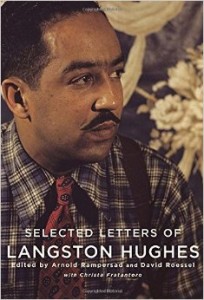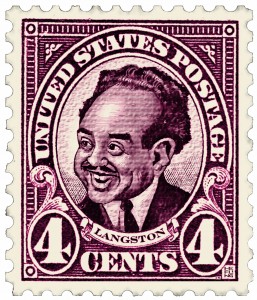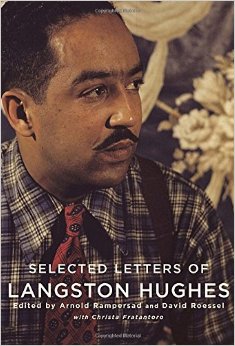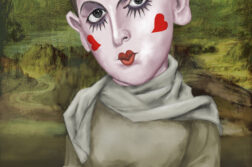 Selected Letters of Langston Hughes
Selected Letters of Langston Hughes
Edited by Arnold Rampersad and David Roessel
Alfred A. Knopf. 480 pages, $35.
A POET from adolescence, James Langston Hughes was determined to earn his living by writing. As a black man who met with racism on a daily basis, he was drawn to radical socialism—and was eventually called to testify at the infamous McCarthy hearings. In addition, he was probably gay. In the face of these and other challenges, Hughes persisted, publishing more than a dozen books of poetry and twice that number of novels, biographies, histories, essays, and short story collections for adults and young people. He was a playwright, librettist, and translator, and he received the Spingarn Medal from the NAACP for outstanding achievement. And over the course of a complex, demanding life he wrote thousands of letters.
Stanford Professor Emeritus Arnold Rampersad and Professor David Roessel of Stockton College in New Jersey have culled over 250 letters from the poet’s archive at Yale. The letters begin in 1921, when Hughes entered Columbia (he left a year later, graduating in 1929 from Lincoln University, where Thurgood Marshall was a classmate), and end just before his death in 1967. The goal was to create “an epistolary companion” to the poet’s life, Rampersad says, and the letters are organized by decade. Photos and page notes complete a picture of the people, places, and events mentioned in the letters.
Born in Joplin, Missouri, in 1902, Hughes grew up in Kansas, Illinois, and Ohio. His racially mixed ancestry included two white great-grandfathers who owned and traded slaves, and a black grandfather who was an abolitionist and educator. His father, who had a law degree, relocated to Mexico when he couldn’t find work. Hughes’ mother remarried, but she moved often, and the poet was raised largely by his grandmother.
 The absence of parents left Hughes with indelible feelings of desolation and a fear of poverty. As seen in Selected Letters, he was, like his mother, drawn to the theater, and he wrote many plays. Like his father, he was businesslike, writing letters to publishers and lawyers in clear, specific prose. Above all, he aimed to be a voice for his fellow black Americans, a goal that he largely achieved, though not quickly and not without difficulty.
The absence of parents left Hughes with indelible feelings of desolation and a fear of poverty. As seen in Selected Letters, he was, like his mother, drawn to the theater, and he wrote many plays. Like his father, he was businesslike, writing letters to publishers and lawyers in clear, specific prose. Above all, he aimed to be a voice for his fellow black Americans, a goal that he largely achieved, though not quickly and not without difficulty.
The 1920s were infused with the energy of the literary movement that would become known as the Harlem Renaissance. Diversity was in style—up to a point. Selected Letters shows Hughes writing with enthusiasm to other young black authors, such as Countee Cullen, Wallace Thurman, Harold Jackman, and Claude McKay, as well as to older mentors like Carl Van Vechten and Alain Locke, who found him patrons.
By 1927, Hughes had published two books of poems and embarked on the first of many tours through the South, reading at black colleges for minimal fees. Racism was still abundantly evident, and the poet’s 1930 letter to McKay exudes outrage: “Fisk University has a new library. At least a nigger a week is being lynched in the South this season, the color line is getting tighter and tighter, even in New York, but in books and the theatre the Negro is still muy simpatico. Dance, damn you, dance! You’re awfully strange and amusing!” That year saw twenty lynchings of black men in the U.S.
The notorious Scottsboro case of 1931 galvanized Hughes. Nine black youths riding a train through rural Alabama were falsely accused of raping two white women, arrested, tried, and found guilty. Selected Letters quotes from the poem, “Christ in Alabama,” which shows his clear anger, beginning with, “Christ is a nigger,/ Beaten and black:/ Oh, bare your back!” Hughes set out to raise funds for the Scottsboro youths’ defense, writing to Cullen for help with the “intensive campaign.”
Hughes supported the Allied effort in World War II while recognizing the irony of Americans’ opposition to Hitler coupled with their tolerance of racism. He wrote an essay for radio broadcast that applied Roosevelt’s “four freedoms” to the cause of desegregation, but Selected Letters notes that the essay was deemed “too controversial” for airing.







Discussion1 Comment
“he was probably gay”.
No proof, given. No citations. No anecdotes.
Just a claim.
I say he wasn’t.
Who’s right?